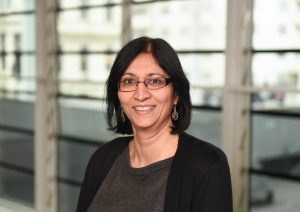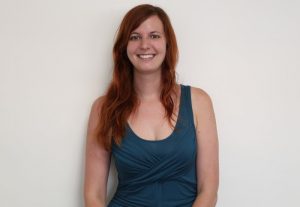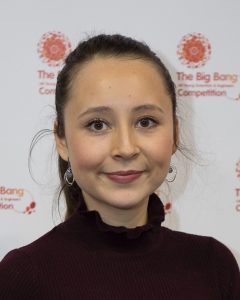Article by Gemma Ralton.
 Nausheen Basha is a Chartered Engineer and Project Manager at Imperial’s Chemical Engineering Department with keen interests in fluid dynamics, multiphase flows, computing and improving diversity in engineering.
Nausheen Basha is a Chartered Engineer and Project Manager at Imperial’s Chemical Engineering Department with keen interests in fluid dynamics, multiphase flows, computing and improving diversity in engineering.
She is currently on track to graduate with a PhD in Mechanical Engineering at the City University of London, specialising in computational fluid dynamics modelling of oil injected screw compressors.
Nausheen first became interested in engineering from a young age after watching Titanic. She was fascinated by the engineering room and inspired by her own uncle who was a marine engineer. She said: “When watching Titanic I would be thinking, what drives this massive vessel in the middle of the ocean? That’s what drove me to study engineering, and to see how useful it could be.”
Her interests led her to complete her BEng and MSc in Aerospace Engineering, graduating in 2014 from the University of Manchester.
Following this, she gained experience as a Modelling and Simulation Engineer at PSI Global Limited where she received an ‘outstanding’ award by Innovate UK for her work in modelling air-oil separators.
Whist undertaking her PhD, Basha worked full time as a Research Assistant from 2016 to 2020 with Centre for Compressor Technology, collaborating with Kirloskar Pneumatic Company Limited to design, develop and test a new range of oil-injected screw compressors, a common type of component used in manufacturing and energy industries.
She has multiple research publications in the application of computational fluid dynamics to oil-injected compressors and filters to improve efficiency and conserve energy.
In her current role at Imperial, Nausheen manages a UKRI funded project that aims at advancing machine learning and AI to create ultra-fast predictive models in multiphase flow systems for applications in various sectors including manufacturing, energy and healthcare.
Commenting on what she most enjoys about her role Nausheen said: “As a project manager I am working on multiple projects simultaneously and so I can take a look at what’s being done in every single project. That way I get to look at the bigger picture – seeing how everything is connected with each other.”
As a female engineer, Nausheen has always been aware of the lack of gender diversity within her discipline. Now she helps to inspire other women to take up STEM subjects, working with the Women’s Engineering Society, a charity organisation and professional network of women engineers, scientists and technologists, offering inspiration, support and professional development.
She writes regular newsletters for them and is also a columnist for Process Industry Informer.
According to Nausheen, her next biggest challenges will be finding out how we could use machine learning and computing power in order to solve the engineering challenges quicker and reliably in a less human intrusive way. Her upcoming projects will be devoted to nuclear energy and hydrogen as she aids important chemical engineering work towards achieving decarbonisation targets.
 Dr Deesha Chadha OBE is a Senior Strategic Teaching Fellow in Imperial’s Department of Chemical Engineering with a career in higher education spanning over 20 years.
Dr Deesha Chadha OBE is a Senior Strategic Teaching Fellow in Imperial’s Department of Chemical Engineering with a career in higher education spanning over 20 years.


